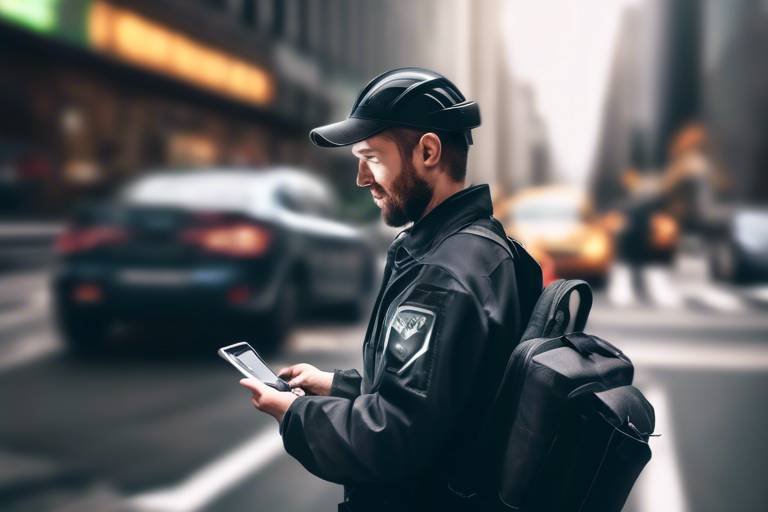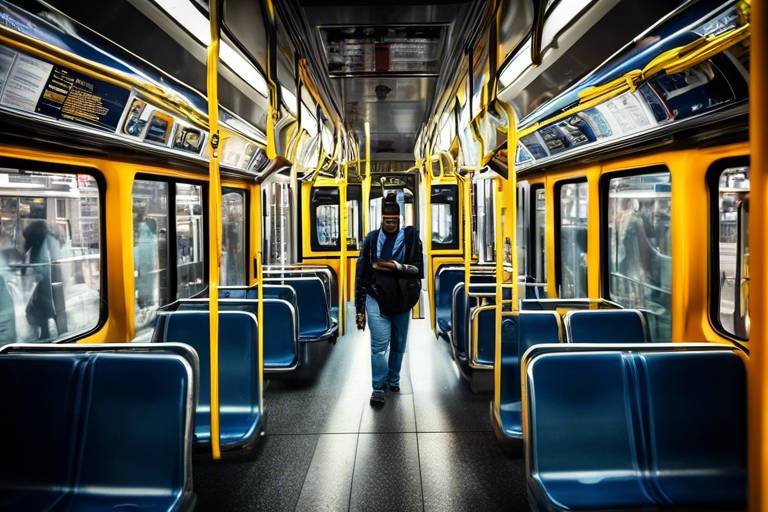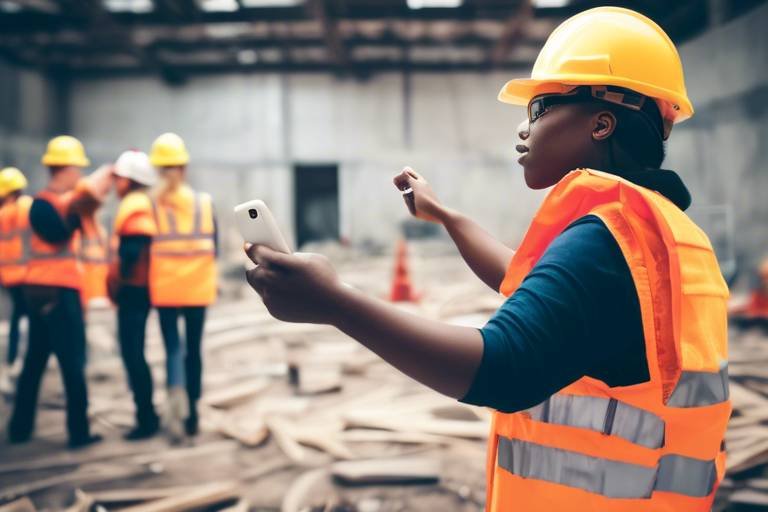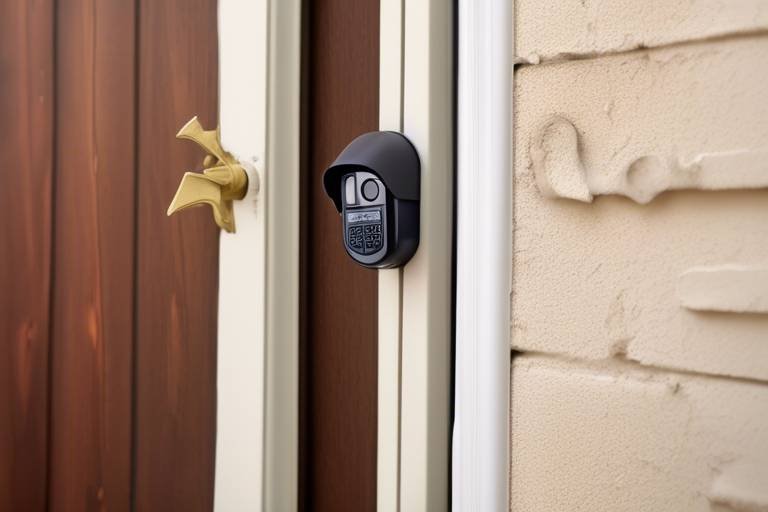Protecting Your Safety in the Gig Economy
The gig economy is booming, and while it offers flexibility and independence, it also comes with its own set of challenges, particularly when it comes to personal safety. Imagine navigating a bustling city as a rideshare driver or delivering food late at night; each gig can feel like a mini-adventure, but it can also pose risks that are often overlooked. So, how can you ensure your safety while enjoying the perks of gig work? This article dives deep into essential strategies and considerations for protecting yourself in this dynamic work environment.
The gig economy refers to a labor market characterized by short-term, flexible jobs, often mediated by digital platforms. It has seen explosive growth over the past decade, with millions of people turning to gig work for various reasons, such as the desire for autonomy, supplementary income, or even full-time employment. From rideshare drivers and food delivery personnel to freelance graphic designers and virtual assistants, the types of jobs available are as diverse as the workers themselves. However, this flexibility can lead to unique safety concerns that every gig worker should be aware of.
As a gig worker, you may face several safety risks that can affect your physical, financial, and emotional well-being. Recognizing these risks is the first step in mitigating them. Here are some common safety concerns:
- Physical Dangers: Whether you're on the road or meeting clients in unfamiliar areas, physical safety is paramount.
- Financial Fraud: Scams targeting gig workers are becoming increasingly sophisticated, making it essential to stay vigilant.
- Emotional Stress: The unpredictability of gig work can lead to heightened stress levels, which can impact your overall safety and decision-making.
In particular, physical safety is a critical issue for gig workers, especially those involved in transportation and delivery roles. Situational awareness is your best friend; it’s like having a sixth sense that alerts you to potential dangers. For instance, always be aware of your surroundings, especially when picking up or dropping off clients in unfamiliar neighborhoods. Trust your instincts—if something feels off, it probably is. Additionally, consider the use of personal safety devices, such as pepper spray or personal alarms, to give you an added layer of protection.
For those in transportation roles, safe driving practices are essential. Here are some best practices to consider:
- Vehicle Maintenance: Regularly check your vehicle's condition to prevent breakdowns and ensure safety features are functioning.
- Route Planning: Use reliable navigation apps to plan your routes, avoiding high-crime areas whenever possible.
- Technology Use: Leverage apps that allow you to share your location with trusted friends or family while on the job.
Emergencies can happen at any moment, so being prepared is crucial. Have a plan in place for various scenarios, such as accidents or confrontations. This might include keeping emergency contacts saved on your phone, knowing the nearest hospitals, or having a first-aid kit in your vehicle. Remember, the more prepared you are, the more confident you’ll feel when facing unexpected situations.
Financial safety is another critical aspect of gig work. Many gig workers operate as independent contractors, which means they need to take extra precautions to protect their finances. Here are some measures you should adopt:
- Secure Payment Methods: Always use secure payment platforms that offer buyer protection to avoid scams.
- Understand Contracts: Read the fine print before signing any agreements to ensure you're not exposing yourself to unnecessary risks.
- Protect Personal Information: Be cautious about sharing personal details with clients or on public platforms.
In our tech-driven world, leveraging technology can significantly enhance safety for gig workers. Various apps and tools are designed to help you stay safe while on the job. For example, location-tracking apps can provide peace of mind to both you and your loved ones. Additionally, some platforms offer built-in safety features, such as emergency buttons or customer verification systems, to help protect you during gigs.
There are several popular safety apps that gig workers can utilize:
- Life360: A family locator app that allows you to share your location with trusted contacts.
- SafeTrek: An app that lets you hold a button when you feel unsafe. If you release it without entering a code, authorities are notified.
- Haven: A personal safety app that uses your phone’s sensors to detect unusual activity.
Building a support network among fellow gig workers can be invaluable. Sharing experiences and safety tips can create a sense of community and mutual aid. Consider joining local or online groups where gig workers congregate. Not only can you gain insights into best practices, but you can also foster relationships that may come in handy during challenging times.
Q: What should I do if I feel unsafe during a gig?
A: Trust your instincts. If you feel unsafe, remove yourself from the situation as quickly as possible and contact the authorities if necessary.
Q: How can I protect my personal information while working?
A: Use secure payment methods, limit the personal information you share with clients, and be cautious about what you post online.
Q: Are there specific apps that can help enhance my safety?
A: Yes! Apps like Life360, SafeTrek, and Haven are great tools to enhance your safety while working in the gig economy.

Understanding the Gig Economy
The gig economy has transformed the way we work, offering unparalleled flexibility and a variety of job opportunities that cater to different skills and lifestyles. In essence, the gig economy refers to a labor market characterized by short-term, flexible jobs, often mediated by digital platforms. This shift from traditional employment has skyrocketed in recent years, with millions of individuals opting for gig work as a primary source of income. But what does this mean for the workers involved? Let's dive into the details.
One of the most fascinating aspects of the gig economy is its rapid growth. According to recent statistics, approximately 36% of U.S. workers are engaged in gig work, and this number is expected to rise. The appeal lies in the ability to choose when, where, and how much to work, which is particularly attractive to those juggling multiple responsibilities or seeking supplementary income. Gig jobs range from driving for ride-sharing services like Uber and Lyft to freelance writing, graphic design, and even household chores through platforms like TaskRabbit.
However, this flexibility does not come without its challenges. As gig workers navigate this new landscape, they face unique safety concerns that are often overlooked. For instance, while the ability to set your own hours is great, it can also lead to unpredictable income and a lack of job security. Furthermore, gig workers often operate without the benefits that traditional employees enjoy, such as health insurance or retirement plans. This absence of support can make gig work a double-edged sword.
In addition to financial instability, gig workers must also contend with various risks associated with their jobs. These can include:
- Physical dangers: Especially for those in transportation or delivery roles, the risk of accidents or confrontations is ever-present.
- Financial fraud: With the rise of digital transactions, gig workers are increasingly vulnerable to scams and identity theft.
- Emotional stress: The uncertainty and isolation that can accompany gig work may lead to increased anxiety and mental health challenges.
Understanding these factors is crucial for anyone considering a leap into the gig economy. It's not just about the freedom to choose your hours; it's also about being aware of the landscape and preparing for the challenges that come with it. As we explore further into the article, we will discuss specific safety risks and strategies that gig workers can implement to protect themselves while thriving in this dynamic work environment.
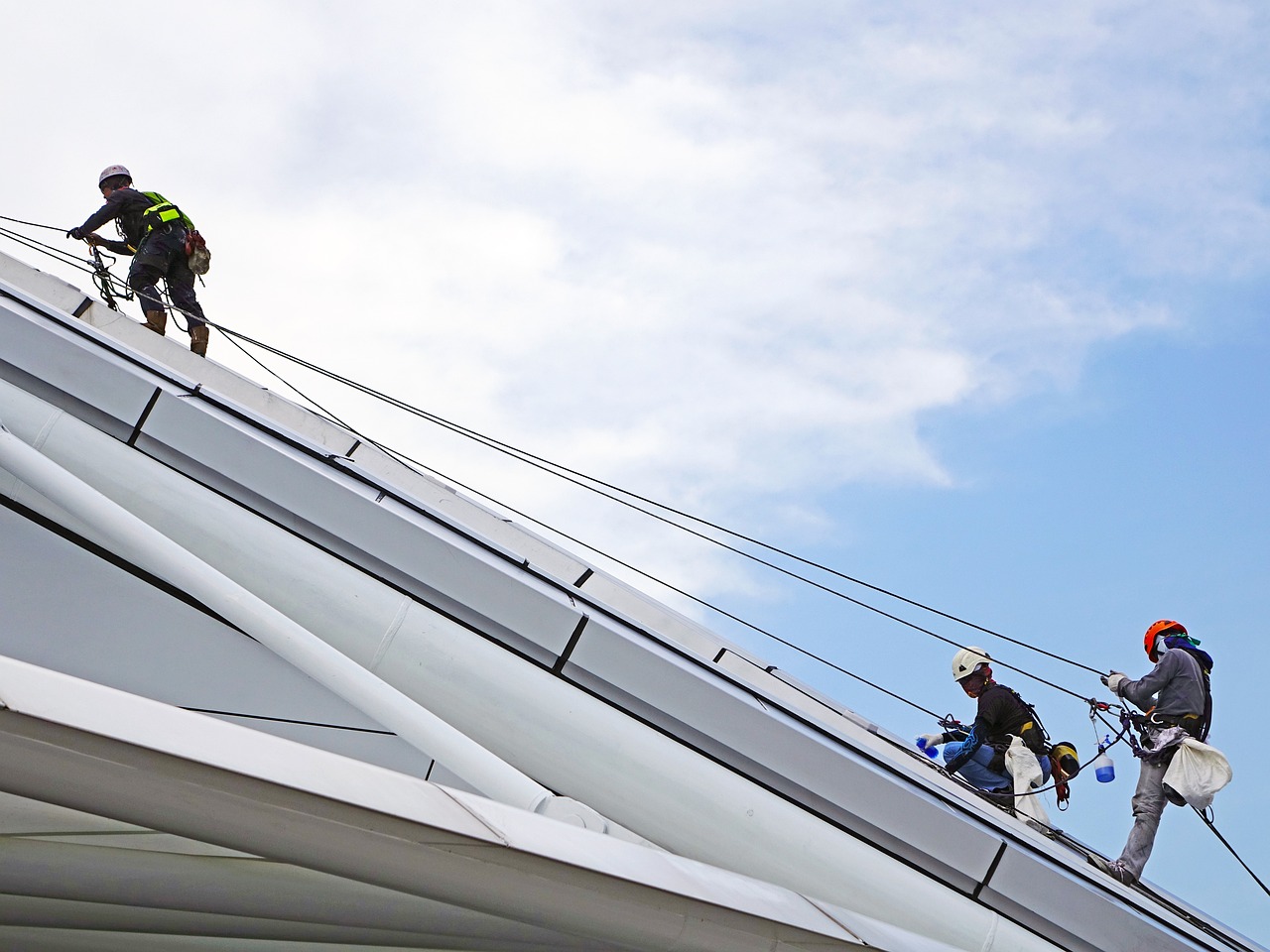
Common Safety Risks for Gig Workers
The gig economy, while offering unparalleled flexibility and independence, comes with its own set of safety risks that can make the working experience quite daunting. Many gig workers find themselves navigating a landscape filled with uncertainties, where personal safety can be compromised. From physical dangers on the job to financial scams lurking around every corner, understanding these risks is crucial for anyone looking to thrive in this modern workforce.
One of the primary concerns revolves around physical safety. For gig workers involved in transportation or delivery services, the risks are heightened. Imagine driving late at night in an unfamiliar area, or meeting a customer who may not have the best intentions. Situational awareness becomes your best friend. It's essential to be alert and prepared for anything, whether it's road hazards, aggressive customers, or unexpected weather changes. The reality is, when you're out there working solo, you need to be your own safety net.
Physical safety issues can manifest in various ways, especially for those in roles that require them to be on the move. For instance, delivery drivers often face risks such as:
- Accidents on the road
- Confrontations with customers
- Personal theft or robbery
Each of these scenarios can lead to not just physical harm but also emotional distress. Therefore, it’s vital for gig workers to adopt a proactive approach to their safety. This could mean taking a self-defense class or simply being aware of your surroundings at all times. Remember, your intuition is a powerful tool—if something feels off, it probably is.
To mitigate the risks associated with transportation, gig workers should follow some best practices. Regular vehicle maintenance is non-negotiable; a well-maintained vehicle is less likely to break down or cause accidents. Additionally, route planning can save time and reduce stress. Using technology such as GPS apps not only helps in navigating but can also alert you to traffic issues or unsafe areas. Always keep your phone charged and have a backup charger in your vehicle, just in case.
In the unpredictable world of gig work, being prepared for emergencies is essential. This means having a plan for various scenarios, such as:
- Accidents: Know who to call and how to report incidents.
- Confrontations: Have a strategy for de-escalating tense situations.
- Breakdowns: Ensure you have roadside assistance and know how to handle car troubles.
By taking these precautions, gig workers can feel more secure in their roles, knowing they have a plan in place should the unexpected occur.
Another significant area of concern for gig workers is financial safety. With the rise of online transactions, gig workers are often vulnerable to fraud. It’s crucial to adopt secure payment methods and always verify the legitimacy of contracts before agreeing to work. Protecting personal information is paramount; never share sensitive details unless absolutely necessary, and be cautious of phishing scams that try to lure you into giving up your information.
In conclusion, while the gig economy offers exciting opportunities, it also presents unique safety risks. By being aware of these risks and taking proactive steps to protect themselves, gig workers can enjoy the benefits of this flexible work environment while minimizing potential dangers.
Q: What are the common physical safety risks for gig workers?
A: Common risks include accidents while driving, confrontations with customers, and the potential for theft or robbery.
Q: How can gig workers ensure their financial safety?
A: Gig workers should use secure payment methods, understand contracts clearly, and safeguard their personal information from potential fraud.
Q: What should gig workers do in case of an emergency?
A: It's important to have a plan in place, know who to contact for assistance, and be prepared for various scenarios such as accidents or confrontations.

Physical Safety Concerns
When it comes to the gig economy, one of the most pressing issues that gig workers face is physical safety. Whether you're delivering food, driving passengers, or performing home repairs, the risks can be significant. Imagine being out late at night, making a delivery in an unfamiliar neighborhood—your heart races as you think about what could happen. It's not just about the job; it's about your safety. The reality is that gig work often places individuals in vulnerable situations where they must remain vigilant and proactive.
For instance, in transportation roles, gig workers are at a higher risk of accidents on the road. Distracted driving, bad weather, and poorly maintained vehicles can all contribute to dangerous situations. Additionally, delivery drivers often find themselves in high-crime areas, which can lead to confrontations or theft. Being aware of these risks is the first step in ensuring your safety. Situational awareness—the ability to recognize and assess potential dangers—is crucial. This means not only being alert to your surroundings but also trusting your instincts when something feels off.
In addition to environmental hazards, emotional stress can also take a toll on physical safety. The constant pressure of meeting deadlines, dealing with difficult customers, or navigating unpredictable work hours can lead to burnout and impaired judgment. When you're exhausted or stressed, your ability to react to potential threats diminishes. Therefore, it's essential to incorporate stress management techniques into your routine. Whether it's through exercise, meditation, or simply taking breaks, keeping your mental health in check is vital for your overall safety.
To mitigate these risks, gig workers should adopt several best practices:
- Plan Your Routes: Before heading out, familiarize yourself with the area. Use GPS apps that offer real-time traffic updates and route suggestions to avoid dangerous neighborhoods.
- Vehicle Maintenance: Regularly check your vehicle's condition. Ensure brakes, lights, and tires are in good shape to reduce the risk of accidents.
- Emergency Preparedness: Always have a plan in case of emergencies. Carry a fully charged phone, know local emergency numbers, and consider taking self-defense classes.
In conclusion, while the gig economy offers flexibility and opportunities, it also presents unique physical safety challenges. By staying informed, practicing situational awareness, and preparing for emergencies, gig workers can significantly reduce their risk while navigating this dynamic work environment.
Q: What should I do if I feel unsafe during a gig?
A: Trust your instincts. If a situation feels off, it's better to err on the side of caution. Consider leaving the area and reporting any suspicious behavior to authorities.
Q: How can I improve my situational awareness?
A: Practice being mindful of your surroundings. Avoid distractions like your phone when in unfamiliar areas, and always be aware of who is around you.
Q: Are there specific safety apps I should use?
A: Yes! Apps like SafeTrek, Life360, and Uber's safety features can help you stay connected and alert in potentially dangerous situations.
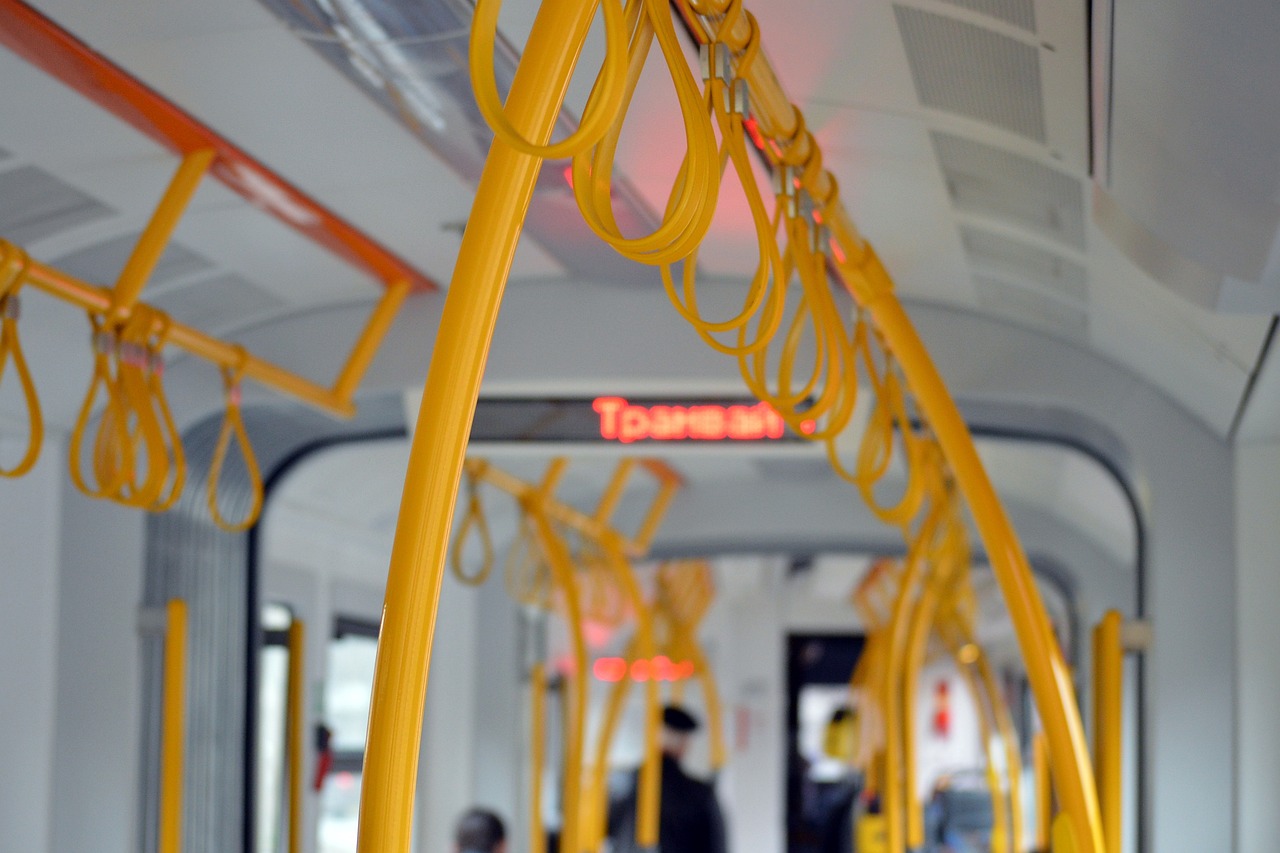
Safe Transportation Practices
When it comes to navigating the gig economy, especially in roles that involve transportation and delivery, are crucial. Imagine being a gig worker, zipping through city streets, juggling multiple deliveries, and trying to make the most of your time. It can be exhilarating, but it also comes with its own set of risks. One of the most effective ways to mitigate these risks is through proactive safety measures. Let’s dive into some essential practices that can help keep you safe on the road.
First and foremost, vehicle maintenance cannot be overlooked. A well-maintained vehicle is your lifeline in the gig economy. Regularly check your oil, brakes, tires, and lights. You wouldn’t want to be caught on the road with a flat tire or failing brakes, right? Keeping a maintenance log can be a great way to track when your vehicle needs attention. This simple practice not only enhances your safety but can also save you from costly repairs down the line.
Next up is route planning. Before heading out, take a moment to map out your deliveries. Use reliable navigation apps that provide real-time traffic updates. This not only helps you avoid congested areas but also allows you to choose safer routes. For instance, if you’re delivering late at night, opting for well-lit streets over dark alleys can make a significant difference in your safety. And don’t forget to share your route with a friend or family member; it’s always a good idea to have someone know where you are.
Additionally, leveraging technology can greatly enhance your safety. Many gig platforms offer built-in features for tracking your location and sharing it with others. Utilize these tools! They can provide peace of mind, knowing that someone is aware of your whereabouts. Furthermore, consider using apps designed specifically for safety, allowing you to alert emergency contacts with just a tap if you ever feel uncomfortable or threatened.
Lastly, it’s essential to stay aware of your surroundings. Situational awareness is your best friend. Always be on the lookout for anything unusual, whether it’s a suspicious individual or a vehicle that seems to be following you. Trust your instincts; if something feels off, don’t hesitate to change your route or seek help. Remember, the gig economy is not just about making money, but also about ensuring your personal safety while doing so.
In conclusion, implementing safe transportation practices is not just a choice; it’s a necessity for gig workers. By maintaining your vehicle, planning your routes, utilizing technology, and staying aware of your surroundings, you can navigate the gig economy with confidence and security. After all, a safe gig worker is a successful gig worker!
- What should I do if I feel unsafe during a delivery? Trust your instincts. If you feel uncomfortable, change your route or seek help from someone nearby.
- How often should I perform maintenance on my vehicle? Regular maintenance should be done at least every 3,000 to 5,000 miles, but check your owner's manual for specific recommendations.
- Are there any specific apps that can enhance my safety? Yes! Apps like Life360 and Noonlight can help you stay connected and alert emergency contacts if needed.

Emergency Preparedness
When it comes to gig work, being prepared for emergencies is not just a good idea; it's a necessity. Imagine you're out on a delivery, and suddenly your car breaks down in a sketchy neighborhood. Or perhaps you're making a ride-share drop-off and encounter an aggressive passenger. These scenarios can happen to anyone, and the best way to handle them is through effective .
First and foremost, it's crucial to have a plan in place. This means knowing the emergency numbers in your area and having them saved on your phone. But don't stop there—consider creating a quick-reference list of contacts, including friends or family who can be reached in case of an emergency. This list can be stored in your phone or even printed out and kept in your wallet. It's like having a safety net, ready to catch you when things go awry.
Next, think about what you would do in various emergency situations. For instance, if you're involved in an accident or feel threatened, do you know how to report it quickly? Familiarize yourself with the local laws regarding emergencies and how to contact the police or other emergency services. A quick response can make all the difference, so practice what you would say when you call for help. This can save precious time and reduce panic during a stressful moment.
Additionally, consider investing in safety gear that can aid in emergencies. For gig workers who drive, having a basic first-aid kit in your vehicle is a smart move. You never know when a small cut or injury might occur, and being able to address it immediately can prevent further complications. Moreover, think about carrying a portable phone charger, so you’re never left without communication when you need it most.
Lastly, don’t underestimate the power of community. Building a network with other gig workers can provide you with valuable insights into handling emergencies. Sharing experiences and strategies can make you feel less isolated and more empowered. Consider joining local gig worker groups or online forums where you can exchange safety tips and advice.
In conclusion, being prepared for emergencies as a gig worker involves a mix of planning, resourcefulness, and community support. By taking proactive steps, you can navigate the unpredictable nature of gig work with greater confidence and peace of mind.
- What should I do if I feel unsafe during a gig?
Trust your instincts. If you feel uncomfortable, it's okay to leave the situation and seek help or report it. - How can I find emergency contacts quickly?
Save important contacts in your phone and consider using a safety app that can provide quick access to emergency services. - Is it worth investing in safety gear?
Absolutely! Having items like a first-aid kit and a portable charger can be lifesaving in emergencies.

Financial Safety Measures
In the gig economy, where flexibility is king and the hustle never stops, financial safety measures are your armor against potential threats. Just like you wouldn’t leave your front door wide open while you’re away, you shouldn’t leave your financial information vulnerable either. Gig workers often face unique challenges, from fluctuating income to the risk of fraud, making it crucial to adopt smart financial practices. So, how can you safeguard your hard-earned money while navigating this dynamic landscape?
First and foremost, understanding the payment methods available to you is vital. Opt for secure platforms that offer buyer and seller protection. Payment systems like PayPal, Venmo, or specialized gig platforms often have built-in security features that can help shield you from fraud. Always remember, if a payment method seems too good to be true, it probably is! Besides, keeping your financial transactions within trusted apps can minimize the risk of scams.
Moreover, it’s important to thoroughly read and understand contracts before diving into any gig. Contracts are like roadmaps; they guide you through your responsibilities and rights. If you’re unsure about certain terms, don’t hesitate to ask for clarification. A well-informed gig worker is a safer gig worker. In fact, consider keeping a checklist of essential contract elements to look for:
| Contract Element | Importance |
|---|---|
| Payment Terms | Ensures you know when and how you’ll be paid. |
| Scope of Work | Clarifies what is expected from you, reducing misunderstandings. |
| Termination Clause | Outlines the conditions under which the contract can be ended. |
| Liability Provisions | Defines who is responsible in case of issues. |
Another critical aspect of financial safety is protecting your personal information. With the rise of digital transactions, your data can be a goldmine for identity thieves. Always use strong, unique passwords for your accounts, and consider enabling two-factor authentication wherever possible. This adds an extra layer of security, making it more challenging for unauthorized users to access your information. Think of it as having a double lock on your door; it’s an extra step that can keep unwanted visitors out.
Lastly, consider setting up a separate bank account for your gig income. This not only helps you track your earnings more efficiently but also creates a buffer between your personal and professional finances. By doing this, you can better manage your budget and prepare for those inevitable dry spells when gigs may be scarce. It’s like having a safety net; it gives you peace of mind knowing you have funds set aside for emergencies.
In summary, being proactive about your financial safety in the gig economy can save you from potential headaches down the line. By choosing secure payment methods, understanding contracts, protecting your personal information, and keeping your finances organized, you’re not just surviving the gig economy—you’re thriving in it! Remember, your financial safety is in your hands, so take charge and make informed decisions.
- What are the best payment methods for gig workers? Secure platforms like PayPal and Venmo are recommended as they offer protection features.
- How can I protect my personal information? Use strong passwords, enable two-factor authentication, and be cautious about sharing sensitive details.
- Is it necessary to read contracts carefully? Absolutely! Understanding contracts helps you know your rights and responsibilities, preventing potential disputes.

Utilizing Technology for Safety
In today's fast-paced gig economy, technology plays a pivotal role in ensuring the safety of gig workers. With the rise of various apps and tools, workers can now navigate their gigs with a greater sense of security. But how exactly does technology enhance safety? Let’s dive into the myriad ways it can help you stay safe while hustling.
First and foremost, location tracking apps are a game changer. Imagine you’re a rideshare driver picking up a passenger in an unfamiliar area. With real-time GPS tracking, not only can you find your way, but your loved ones can also see your location. This feature adds a layer of accountability and peace of mind. But it doesn't stop there; many of these apps come equipped with an emergency button that can alert authorities or designated contacts in case of trouble. Isn't that reassuring?
Moreover, communication tools have revolutionized how gig workers interact with clients and each other. Instant messaging apps allow for seamless communication, which is crucial when you're coordinating pickups or deliveries. But let’s not forget about safety features like video calls. If you're ever in doubt about a client or a job, a quick video call can help you gauge the situation better. Think of it as your virtual safety net!
To further bolster your safety, consider utilizing dedicated safety apps designed specifically for gig workers. These apps often include features such as:
- Incident reporting: Quickly report any safety concerns or incidents.
- Emergency assistance: Access emergency services with just a tap.
- Safety check-ins: Notify friends or family when you arrive at a job safely.
But what about identity verification? In a world where financial fraud is rampant, ensuring that you’re working with legitimate clients is crucial. Many platforms now offer built-in verification processes that help confirm the identity of both gig workers and clients. This means you can focus on your work without constantly worrying about scams. It’s like having a bouncer at the door of your gig!
Lastly, let’s not underestimate the power of community. Technology fosters connections among gig workers, allowing for the sharing of safety tips and experiences. Online forums and social media groups can serve as platforms where you can learn from others’ experiences and even form buddy systems for added safety. After all, there’s strength in numbers, right?
In conclusion, the integration of technology in the gig economy is not just a convenience; it's a necessity for ensuring safety. From tracking your location to verifying identities, the tools available today empower gig workers to take charge of their safety. So, the next time you embark on a gig, remember to leverage these technological advancements to protect yourself. It's your gig, and you deserve to feel safe while you hustle!
Q: What are some recommended safety apps for gig workers?
A: Some popular safety apps include Life360 for location sharing, SafeTrek for emergency alerts, and Noonlight for quick emergency assistance.
Q: How can I ensure my personal information is secure while working?
A: Always use secure payment methods, avoid sharing sensitive information unnecessarily, and familiarize yourself with the privacy policies of the platforms you use.
Q: What should I do if I feel unsafe during a gig?
A: Trust your instincts. If you feel uncomfortable, it’s okay to decline the job or leave the situation. Use your safety app to alert someone if necessary.

Safety Apps and Tools
In today's fast-paced gig economy, where flexibility often comes at the cost of security, leveraging technology has become essential for ensuring personal safety. Various apps and tools are designed specifically to aid gig workers in navigating their daily tasks while keeping safety at the forefront. These applications not only help in enhancing situational awareness but also provide quick access to emergency services and communication tools, which can be lifesavers in critical situations.
One of the most significant advantages of using safety apps is their ability to offer real-time updates and alerts. For example, apps like Life360 allow gig workers to share their location with trusted friends or family members, ensuring that someone always knows where they are. This feature can be particularly comforting for those working late hours or in unfamiliar areas. Additionally, many of these apps provide a panic button feature that can instantly alert authorities or designated contacts in case of an emergency.
Moreover, there are tools available that facilitate safe communication between gig workers and their clients. For instance, Signal and WhatsApp offer encrypted messaging options, ensuring that personal information remains secure while allowing for seamless communication. This is crucial for gig workers who often need to share sensitive information, such as addresses or payment details, without exposing themselves to potential fraud or harassment.
To give you a better understanding of some of the best safety apps available, here’s a quick overview of a few popular options:
| App Name | Features | Platform |
|---|---|---|
| Life360 | Location sharing, emergency alerts, driving safety | iOS, Android |
| SafeTrek | Panic button, location tracking, emergency services contact | iOS, Android |
| Circle of 6 | Quick contacts for help, location sharing, safety tips | iOS, Android |
| Uber's Safety Toolkit | Real-time GPS tracking, emergency button, driver verification | iOS, Android |
In addition to these apps, it's equally important for gig workers to establish a network of support. Connecting with fellow workers can provide a sense of community and shared experiences, allowing for the exchange of safety tips and best practices. Platforms like Facebook Groups or Reddit communities dedicated to gig workers can serve as valuable resources for sharing information about safe practices and local safety concerns.
Ultimately, while the gig economy offers incredible flexibility and opportunities, it's crucial for workers to prioritize their safety by utilizing the right tools and maintaining open lines of communication. By staying informed and connected, gig workers can significantly reduce their risks and navigate their jobs with greater confidence.
- What are the best safety apps for gig workers? Some of the top safety apps include Life360, SafeTrek, and Circle of 6, each offering unique features to enhance personal safety.
- How can I share my location safely? Using apps like Life360 allows you to share your location with trusted contacts without exposing your information to strangers.
- What should I do in case of an emergency? Many safety apps have panic buttons that can alert authorities or your emergency contacts. Always ensure you have a plan in place.
- Is it safe to communicate personal information through gig platforms? Use encrypted messaging apps to communicate sensitive information and avoid sharing personal details unless absolutely necessary.

Communication and Support Networks
In the gig economy, where flexibility is king and the workforce is often scattered, establishing a robust communication and support network is crucial for ensuring safety and well-being. Think of it like assembling a superhero team; each member brings unique strengths to the table, and together, they can tackle challenges that no one could face alone. By connecting with fellow gig workers, individuals can share vital information, strategies, and experiences that can help navigate the unique risks associated with gig work.
One of the most effective ways to build this network is through social media platforms and dedicated forums. For instance, platforms like Facebook and Reddit have numerous groups specifically for gig workers, where individuals can exchange tips on safety, share their experiences, and even warn others about potential hazards in their area. Imagine having a friend who’s already been down a road you’re about to travel; their insights can save you from unnecessary troubles.
Moreover, communication doesn't just stop at sharing experiences. It extends to creating a safety culture among gig workers. By fostering open discussions about safety practices and encouraging one another to take precautions, gig workers can create an environment where safety is prioritized. This culture can be as simple as checking in with a fellow worker before starting a shift or sharing updates about suspicious activities in the area.
Furthermore, establishing a support network can also include local community groups or organizations dedicated to gig workers. These groups often provide resources, training, and workshops that can enhance safety awareness. For example, some organizations offer self-defense classes or workshops on recognizing and avoiding scams. By participating in these activities, gig workers not only gain valuable skills but also strengthen their connections with others in the same field.
In addition to peer support, technology plays a pivotal role in enhancing communication. There are numerous apps designed specifically for gig workers that facilitate quick and easy reporting of incidents, whether they be safety concerns or customer issues. These apps often include features that allow users to send alerts to their network, ensuring that help is just a click away. Imagine being in a situation where you feel unsafe; having a reliable app that connects you instantly to your support network can make all the difference.
Ultimately, the gig economy can feel isolating at times, but it doesn't have to be. By actively seeking out and nurturing a communication and support network, gig workers can create a safety net that not only protects them but also fosters a sense of community. So, why not reach out today? Connect with others, share your story, and build a network that empowers you to work safely and confidently.
- What is a support network in the gig economy?
A support network is a group of individuals, often fellow gig workers, who share information, resources, and experiences to help each other navigate the challenges of gig work. - How can I find fellow gig workers to connect with?
You can find fellow gig workers through social media platforms, dedicated forums, and local community groups focused on gig economy issues. - Are there specific apps for gig workers to enhance safety?
Yes, there are various apps designed for gig workers that allow for quick reporting of incidents, sharing safety tips, and connecting with support networks. - Why is communication important for gig workers?
Effective communication helps gig workers share safety tips, warn each other about potential risks, and build a sense of community that enhances overall safety.
Frequently Asked Questions
- What is the gig economy?
The gig economy refers to a labor market characterized by short-term, flexible jobs, often mediated by digital platforms. This includes roles like ride-sharing, food delivery, freelance writing, and many more. It's a way for people to earn income outside of traditional full-time employment.
- What are the main safety risks for gig workers?
Gig workers face various safety risks, including physical dangers from transportation roles, financial fraud, and emotional stress from unpredictable work conditions. Being aware of these risks is crucial for maintaining personal safety while working in this environment.
- How can gig workers ensure their physical safety?
To ensure physical safety, gig workers should practice situational awareness, maintain their vehicles, plan safe routes, and use technology like GPS for navigation. Additionally, being prepared for emergencies, such as knowing emergency contacts, can significantly enhance safety.
- What financial safety measures should gig workers adopt?
Gig workers should use secure payment methods, carefully read contracts, and protect their personal information. Being vigilant against potential scams and understanding the terms of service for gig platforms can also help safeguard against financial fraud.
- What technology can help enhance safety for gig workers?
Technology plays a significant role in enhancing safety. There are various safety apps available that allow gig workers to share their location, report emergencies quickly, and communicate with support networks. Utilizing these tools can provide an extra layer of security while working.
- How can gig workers build a support network?
Building a support network involves connecting with other gig workers through social media groups, local meetups, or online forums. Sharing experiences, safety tips, and resources fosters a sense of community and can lead to collaborative solutions for common safety challenges.

